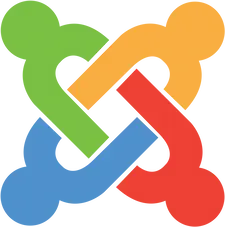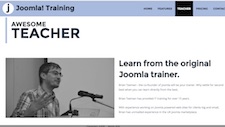(Hint: It’s Not the Person in the Hoodie on the Homepage)
There’s a line I’ve repeated so often I should probably have it printed on a mug:
A non-profit organisation is owned by society.
A for-profit organisation is owned by shareholders.
Simple. Clear. And in the CMS world, it’s the difference between ownership and being owned.
Let’s talk about Joomla and any unnamed commercial CMS with a model on their homepage who is permanently smiling, presumably because they’ve never tried exporting their own content.
Joomla: For the Community, By the Community, Despite the Community
Joomla sits inside Open Source Matters, which is a not-for-profit, meaning:
- no shareholders
- no investors
- no secret plan to sell the project for a yacht named Synergy
When you contribute to Joomla, you're building something that belongs to all of us. There’s no corporate overlord waiting to “pivot the brand”. There’s no CFO demanding “aggressive monetisation”. There’s no pyramid of managers trying to justify their job titles.
Just a community.
A loud, passionate, occasionally chaotic community. Our community.
Meanwhile… in Shareholder Land
Our unnamed commercial CMS competitor? Owned by shareholders. And shareholders want one thing: More.
- More revenue.
- More market share.
- More upsells.
- More tiers.
- More “AI-powered-hyper-personalised-digital-engagement-solutions”. Whatever that means.
If it makes money, it ships tomorrow.
If it doesn’t make money, it’s quietly buried in the car park behind the office.
You are not part of the community.
You are part of the revenue model.
Data Sovereignty. The Awkward Conversation Nobody Wants to Have
Let’s talk about the thing commercial CMS companies avoid mentioning unless bribed with pastries: your data.
You know, the text, files, images, customer lists, workflows, and content you spent months creating?
On many closed platforms, your data is a bit like your luggage in an airport:
- You handed it over.
- You hope it comes back.
- You pray it’s still in one piece.
- You absolutely do not control it.
Exporting your data from some proprietary CMSs is a bit like trying to escape from Alcatraz with a spoon. Technically possible, but only if you don’t mind losing years of your life and half of your content.
Some platforms offer “export tools” that proudly produce:
- A spreadsheet missing all the important bits
- A JSON file large enough to power a small moon
- A folder of images named something helpful like img_7483921_final_FINAL_v3.jpg
- Or my favourite: “Please contact support for data export options”. The digital equivalent of we’d rather you didn’t.
And let’s be clear: This isn’t an accident. This is the business model.
If you can’t get your data out, you can’t leave.
And if you can’t leave, you’ll keep paying.
Joomla Doesn’t Care What You Do With Your Data
With Joomla, your data is yours:
- You can export it.
- You can move it.
- You can transform it.
- You can host it anywhere.
- You can even leave Joomla entirely if you want. (We’ll be sad, but we won’t block the door.)
Joomla doesn’t make money whether you stay or go. No lock-in. No tricks. No “Are you sure you want to end your subscription?” prompts.
This is what data sovereignty looks like: You own your platform, and you own your content.
The Trap of “Easy”
Commercial platforms always brag about being easy. And yes, “easy” is nice just like a hotel minibar is nice and you don’t notice the cost until checkout.
Easy becomes expensive when:
- features get paywalled
- the price increases because “market forces” (translation: shareholders)
- your plan suddenly includes things you don’t need and excludes the things you do
- or your data decides it doesn’t want to come out to play anymore
Joomla may ask you to learn a thing or two and in return, you get freedom. Real freedom. Not “free trial for 14 days and then we lock your content in a vault” freedom.
Joomla Isn’t Perfect. That’s How You Know It’s Honest
Yes, Joomla meetings sometimes need snacks.
Yes, debates occasionally resemble a family argument about the correct way to load a dishwasher.
Yes, volunteers disappear and reappear like wizards.
But that’s how you know it’s real. It’s a community, not a corporation.
No one is hiding a revenue strategy behind the curtains.
No one is optimising your “customer journey funnel”.
No one is turning your content into a proprietary blob of sadness.
So Ask Yourself One Simple Question
Do you want a CMS where:
A) You own your data, your site, and your future
or
B) You can have a personalised dashboard but only until your subscription ends?
If you choose A, you’re choosing Joomla.
If you choose B, good luck and may your exports be ever in your favour.
A non-profit is owned by society.
A for-profit is owned by shareholders.
And only one of them lets you own your content.






